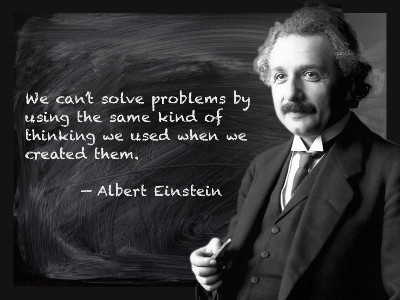Economic paradigm: If I patronize your coffee shop, then you give me something (maybe coffee) and I give you something in return (probably money). In this case, we are both motivated to provide something the other person needs while getting the best possible bargain for ourselves. That’s the basic principle behind exchange economics.
When we extend this simple transaction to a global system, we should also consider long supply chains. So when I buy a cup of coffee at the local shop, I am not buying it from the grower. Instead I buy it from the shop, who bought from the distributor, who bought from the roaster, who bought from the importer, who bought from the shipper, who bought from the export collector, who bought from the grower. Of course something (generally money) was traded at every step along that supply chain.
In a minimal supply chain, limited to just me and a grower, I would know quite a bit more about the product’s history. For example, if I buy a heritage turkey directly from my neighbor at Wattermann Family Farm, I know that the animals are raised and processed humanely and with integrity, I know how the farmer cares for the land, and I know that I can ethically support his efforts. Because of my direct involvement in the one-to-one supply chain, I can vote with my dollar in an knowledgeable way.
But when the supply chain is much longer than that, and certainly before it reaches seven participants like in the coffee example, my vote is no longer educated and I am restricted to voting with minimal information, often based on little more than the price of the product.
To understand the price of a product, we need to realize that every step along the supply chain is necessarily motivated by profit. This is not an indictment of the profit motive; it is just a recognition of how the exchange economic system works: If my coffee purchase is governed largely by price and my vote goes to the lower priced product, then the higher-priced competition will become endangered or extinct in the marketplace. The end result is that the businesses that survive are the ones that are effective at driving prices down. This is not through malice, nor is it anyone’s fault; it is just a natural behavior of the system.

Planting coffee Credit: Catherine Nomura
In a similar way, the coffee farmer at the other end of the supply chain will be pressured to lower prices and may be forced to cut corners, hire workers at poverty wages, or employ harmful land practices, as a way to minimize costs and remain in business.
There are a number of ways people try to combat these problems: trade laws, fair trade, ethical buying, labor laws, consumer education, environmental regulations, etc. All of which are good things, but we should realize that many people will never hear about those ethic-based campaigns or will not care, and there is a strong incentive for every part of that supply chain to push back against regulations. Ultimately such efforts have limited efficacy to truly improve the world.
Civilitic paradigm: In a civilitic “marketplace” (technically we should not call it a marketplace) if I were to patronize your coffee shop, the only coffee available for me would be free. You would receive nothing in exchange from me, but you would be rewarded by society-at-large for being someone who gives away free coffee. As such, your primary motivation is to please society and your secondary motivation is to please me, your customer.
With civilitics, we would probably retain all of the same supply chains for coffee so that everything looks very much like it does in exchange economics except the price/exchange system. What we have done is remove the one-to-one exchange that happens at every link of the chain and replaced it with a sort of social oversight. Just as the coffee shop owner is not rewarded (paid) by the customer, so also the coffee grower is not rewarded (paid) by the export collector. Instead, every member of the supply chain is rewarded independently by society for their contribution to the overall process. If society doesn’t like the process, then the supply chain will be encouraged to find something society does like.

Coffee plantation. Credit: Gillian
Because society is the agency responsible for assigning value to the activities of participants in the example coffee supply chain, there is cost pressure to be applied between the links in the supply chain. In fact, there is a great deal of incentive for cooperation and collaboration. The coffee-grower will want to be rewarded (by society) in the highest possible way and will be inclined to do what society values: treating the crops with care, tending to the land, maintaining good social relationships with workers, and generally being a good and productive steward. There will be little incentive for cutting corners and it will be much as if the customer were dealing directly with the farmer, only better.
Similar reasoning applies to the export collector, shipper, importer, roaster, distributor, and retailer, where there would be incentives to be productive, responsible, and act in the best interest of society and the world. Every place along the supply chain, the incentive changes from profitability (exchange economics) to playing a constructive role in the process (civilitics).
The incentive is to contribute real value (versus money value) because the rewards of society are based upon actual contribution rather than upon some idea about the money saved, labor exploited, or products bought below market price. In short: exchange economics forces a “race to the bottom” (the bottom line) while civilitics encourages a “race to the top” (the moral high ground).
We can’t keep up this race to the bottom while trying desperately to keep ourselves from actually hitting the bottom. It is good that there are regulations and social campaigns to block the downward progress, and those things do help, but the problems we are facing are intrinsic to the system and they will not simply go away. The system of exchange economics created this world and no variation, including green economics, is likely to solve the problems.

Think differently
